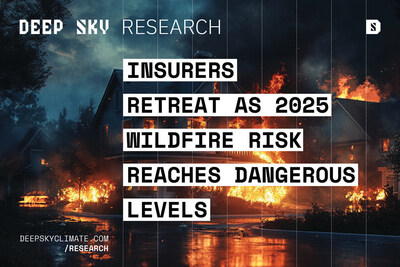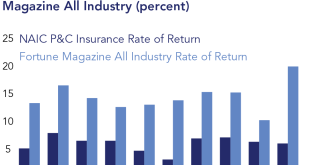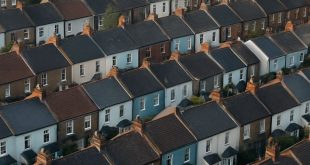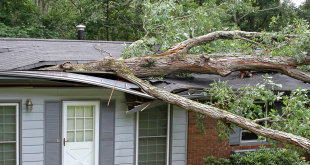Wildfires are becoming increasingly frequent and severe across many regions, creating a challenging landscape for homeowners and insurance providers alike. This surge in wildfire activity is driving a significant shift in the home insurance market, with many companies reassessing their risk exposure and, in some cases, pulling back from offering coverage in vulnerable areas. This leaves homeowners facing higher premiums, reduced coverage options, and the daunting prospect of being uninsurable. It’s a mess, frankly, and you’re probably wondering what it all means for you.
The Growing Wildfire Risk
Factors Contributing to Increased Wildfires
So, what’s fueling these blazes? Well, a bunch of things, really. Climate change is a big one, leading to hotter, drier conditions that make it easier for fires to start and spread. Think of it like kindling – the drier it is, the easier it catches fire. Add to that overgrown vegetation, thanks to years of fire suppression policies (ironic, right?), and you’ve got a recipe for disaster. And let’s not forget human activity – accidental sparks from equipment, unattended campfires, and even discarded cigarettes can ignite devastating wildfires. It’s almost like we’re accidentally setting the world on fire, one oops at a time.
Areas Most Affected
Where are these fires hitting hardest? You’re probably not surprised to hear that the Western United States is bearing the brunt of it. California, Oregon, Washington – they’ve all seen their fair share of catastrophic wildfires in recent years. But it’s not just the West Coast. States in the Southwest, like Arizona and New Mexico, and even parts of the Southeast are becoming increasingly vulnerable. Basically, anywhere that’s getting hotter and drier is at risk. Are you in one of those areas? Might be worth checking.
Insurance Companies Respond
Rate Hikes and Coverage Restrictions
Insurance companies aren’t exactly thrilled about all this fire, as you can imagine. To offset their increasing risk, many are resorting to rate hikes and coverage restrictions. This means you might be paying significantly more for your home insurance, and even then, you might not be fully covered for wildfire damage. Some policies now have higher deductibles for wildfire claims, or exclude certain types of damage altogether. It’s like they’re saying, “Sure, we’ll insure you, but don’t actually expect us to pay out if something happens.” A bit cynical, perhaps, but that’s how it feels sometimes.
Insurers Pulling Out of High-Risk Zones
And then there’s the really scary part: some insurers are just straight-up pulling out of high-risk zones. They’re sending out non-renewal notices to homeowners, leaving them scrambling to find coverage elsewhere. Imagine getting a letter saying, “Sorry, we’re not insuring your house anymore because it’s too likely to burn down.” Talk about a wake-up call. This “home insurance retreat” is creating “insurance deserts” in some areas, where it’s nearly impossible to get coverage at any price. Honestly, it feels like the Wild West out there.
Impact on Homeowners
Difficulty Obtaining Home Insurance
So, what does all this mean for you, the homeowner? Well, if you live in a wildfire-prone area, it means you might have a hard time getting home insurance. You might have to shop around with multiple companies, and even then, you might not find a policy that fits your needs and budget. It’s a stressful and time-consuming process, and there’s no guarantee of success. It can feel like you’re being punished for something you didn’t even do.
Increased Financial Burden
Even if you can find home insurance, it’s likely to come at a hefty price. Higher premiums, higher deductibles – it all adds up. This can put a significant strain on your finances, especially if you’re already struggling with other expenses. And let’s not forget the potential for out-of-pocket costs if a wildfire does damage your property. It’s a financial double whammy that can leave you feeling vulnerable and insecure.
What Homeowners Can Do
Wildfire Mitigation Strategies
Okay, so what can you actually do about it? Don’t just sit there and watch your insurance options go up in flames (pun intended!). There are things you can do to reduce your wildfire risk and make your home more insurable. Clear brush and vegetation around your house, create defensible space, use fire-resistant building materials, and install a Class A fire-rated roof. Think of it as hardening your home against the threat of fire. It’s an investment, sure, but it could pay off in the long run. Plus, it might impress your insurance company, which is always a good thing.
Exploring Alternative Insurance Options
Don’t just rely on traditional home insurance companies. Explore alternative options like surplus lines insurers or state-sponsored FAIR plans (Fair Access to Insurance Requirements). These options might be more expensive or have limited coverage, but they can provide a safety net when other options are unavailable. It’s like having a backup plan for your backup plan. You could also consider joining a mutual aid society, where homeowners pool their resources to help each other out in times of need. It’s a more community-based approach to insurance.
The Future of Home Insurance in Wildfire-Prone Areas
Potential Solutions and Policy Changes
What does the future hold for home insurance in wildfire-prone areas? Well, it’s hard to say for sure, but there are some potential solutions on the horizon. One is the development of more sophisticated risk models that can better assess wildfire risk and price insurance accordingly. Another is the implementation of policies that incentivize homeowners to take wildfire mitigation measures. It’s all about finding a way to balance the needs of homeowners and insurance companies.
Government and Community Involvement
Government and community involvement is also crucial. Governments can invest in wildfire prevention and suppression efforts, and communities can work together to create fire-safe neighborhoods. It’s a collective effort that requires everyone to do their part. Maybe it’s time to start lobbying your local representatives. Just a thought!
The increasing wildfire threat is definitely reshaping the home insurance landscape, leaving you with tough choices. By understanding the risks, taking proactive steps, and exploring all available options, you can navigate this challenging environment and protect your home and financial well-being. Don’t give up hope! It’s a tricky situation, but with a bit of research and effort, you might just find a solution that works for you. And hey, maybe all this fire will inspire you to become a volunteer firefighter. Just kidding (mostly).
 seeme
seeme




